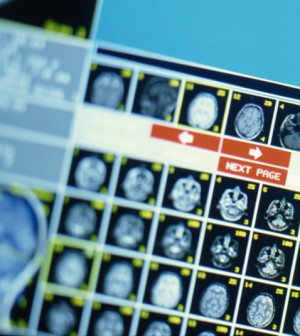- 8 Ways to Increase Dopamine Naturally
- 7 Best Breads for Maintaining Stable Blood Sugar
- Gelatin vs. Collagen: Which is Best for Skin, Nails, and Joints?
- The Long-Term Effects of Daily Turmeric Supplements on Liver Health
- Could Your Grocery Store Meat Be Causing Recurring UTIs?
- Are You Making This Expensive Thermostat Error This Winter?
- Recognizing the Signs of Hypothyroidism
- 10 Strategies to Overcome Insomnia
- Could Artificial Sweeteners Be Aging the Brain Faster?
- Techniques for Soothing Your Nervous System
Health Highlights: Feb. 21, 2014


Here are some of the latest health and medical news developments, compiled by the editors of HealthDay:
More Than 1 in 4 U.S. Employees Work When Sick: Survey
More than one-quarter of Americans go to work when they’re sick, a new survey says.
It found that nearly 20 percent of Americans always go to work when they’re sick and 17 percent stay home only if a doctor tells them to. Men are more likely than women to go to work when they’re sick, the Los Angeles Times reported.
Surprisingly, more than two-thirds of the respondents in the NSF International survey regard fellow employees who come to work sick as “hard workers,” while only 16 percent said they’re showing disregard for the health of their co-workers.
The main reason that many Americans go their jobs even if they’re feeling ill is because of workload, the Times reported.
“Many have deadlines or are afraid they will have too much work to make up if they take a sick day,” NSF said in a statement.
—–
Colorado, Utah Move to Raise Tobacco Age to 21
Colorado and Utah are considering boosting the legal age for tobacco purchases to 21 in response to research that shows that many smokers pick up the habit when they’re teens.
On Thursday, lawmakers in both states voted in favor of proposals to regulate tobacco like alcohol and keep it out of the hands of those younger than 21, the Associated Press reported.
A study published last year found that 90 percent of daily smokers had their first cigarettes by age 18, and that 18- to 20-year-olds purchase 90 percent of cigarettes bought for minors. The paper was published in the journal Annals of Internal Medicine, the AP reported.
A legal smoking age of 21 would greatly reduce tobacco deaths in the future, according to the Washington-based Campaign For Tobacco-Free Kids.
“We see this as sort of an added step to reducing smoking rates,” along with higher tobacco taxes and other restrictions, vice president Peter Fisher told the AP.
Four states — Alabama, Alaska, New Jersey and Utah — currently restrict tobacco purchases to those 19 and older, while the age is 21 in New York and in Hawaii County, Hawaii. Bills to raise the legal age for tobacco to 21 are also pending in Hawaii, Massachusetts and New Jersey, Fisher said.
—–
U.S. Veterans Receiving Unproven Therapies: Experts
Unproven prevention and treatment methods are being used in the care of U.S. veterans of the Iraq and Afghan wars with disorders such as anxiety and depression, a panel of experts say.
They also found that the Department of Defense has no proven programs to prevent domestic abuse and that its programs to combat sexual assault aren’t being assessed to determine if they’re effective, NBC News reported.
“A fundamental finding of the committee is that, with some notable exceptions, few of DOD’s prevention interventions are theory- or evidence-based,” wrote Kenneth Warner, a public health expert at the University of Michigan who led the Institute of Medicine panel.
The findings are important because many veterans of recent wars are struggling with mental health and other types of disorders.
“Between 2001 and 2011 the percentage of active-duty service members diagnosed with a psychological condition increased by approximately 62 percent,” the panel wrote, NBC News reported.
More than 963,000 veterans were diagnosed with at least one mental disorder during service by 2011, and nearly half had more than one such disorder.
The panel said that unproven methods should be discarded and if military officials believe a program is effective, they should conduct studies to prove it, NBC News reported.
A defense department spokesperson said officials are reviewing the Institute of Medicine report.
Copyright © 2026 HealthDay. All rights reserved.










